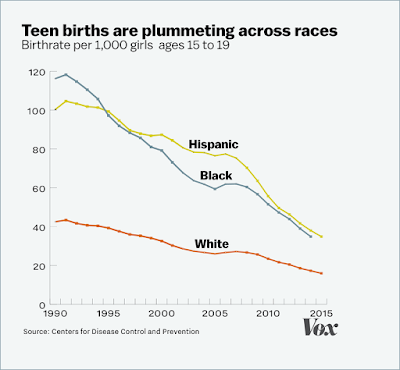I have become a fan of Matt Levine, who writes about Wall Street for Bloomberg. Levine is pretty much the only thing I read about Wall Street these days, because I have little interest in Wall Street, but I find Levine fascinating and hilarious. Fascinating because he provides intriguing tidbits of information about important things that I know nothing about, and hilarious because he is just that kind of writer. His latest column is about a lawsuit filed by the Libya Investment Authority against Goldman Sachs, alleging a fraudulent derivative sale in 2008. The LIA bought $1.2 billion worth of derivatives based on Citibank stock, and stood to make a lot of money if the stock went up. Bad timing. One representative for the plaintiffs said that they didn't understand that if the stock went down, "they could lose all their money." Levine:
But that's a weird thing not to understand. It is true of any stock! If you buy a stock, and the stock goes to zero, you will lose all your money. I mean, if you just bought plain old Citigroup stock in January 2008, you'd have lost 96 percent of your money within 14 months. It may be the case that no one at LIA understood that, if they invested in the shares of big international banks, they could lose all their money -- but that was a widely shared delusion, even in early 2008.The most interesting thing about this Levine column is his thoughts on salesmanship in the modern world. The LIA was talked into this deal by Youssef Kabbaj, a London-based derivatives salesman who was at the time one of Goldman's top rainmakers. Their lawsuit accuses him of "undue influence," that is, of being such a good salesman that they couldn't resist him:
Instead, the main complaint seems to be that the LIA didn't understand the details of the derivative structure: They didn't understand the fine points of the documentation, and they didn't understand one big point, which is that "they hadn't purchased actual shares." The LIA's Citi trade was "a cash-settled forward purchase agreement for Citigroup shares with downside protection in the form of a put option at the same price as the forward," which I guess sounds a little complicated. (Let's give it an acronym for convenience, say CSFPAFCSWDPITFOAPOATSPATF.) You can also say it was "a cash-settled call option," which is equivalent, and somewhat less of a mouthful. Or you can say it was "a bet that Citi's stock would go up." That is more intuitive, but it is not equivalent. It is information-destroying: A cash-settled call option is precisely the same thing as a CSFPAFCSWDPITFOAPOATSPATF, but there are lots of ways to bet that the stock will go up, only some of which are identical to the CSFPAFCSWDPITFOAPOATSPATF.
There are times where the specifics matter. If a salesman says "hey you should do a hedge that will compensate you if interest rates go down," and you agree, and then interest rates go down, but the hedge doesn't actually pay out because of some weird structural feature that the salesman forgot to explain to you, then you have every right to feel aggrieved. If a salesman offers you a bet that Citi shares will go up, and you take the bet, and Citi shares go up, and you don't get any money, and you ask him what happened, and he shrugs and says "derivatives are complicated, man" -- you should probably sue him. But if a salesman offers you a bet that Citi shares will go up, and you take the bet, and Citi shares lose 96 percent of their value, it looks a little funny to go to court and say "well we didn't understand the structural nuances of the bet." The nuances are not your problem.
This sort of thing is as old as business, but we live in challenging times for it. Objective performance is easier than ever to measure, making it harder than ever to justify choices based on boozy dinners instead of rigorous cost-benefit analysis. Communications are easier than ever to record and monitor, making it harder than ever to operate by means of nods and winks. Technology has devalued human intermediaries: Now we buy stuff over the internet, not over dinner. Our society has an ideology of meritocracy, and a distrust of corrupt elites who use connections to get ahead. It's just a bad environment for the classic skills of salesmanship and relationship-building.
One way to think about the Libya case is that Kabbaj was really good at the classical arts of salesmanship. He did all the best salesman-y things. He spent a lot of time with the clients, paid attention to them, explained finance to them. He helped them write memos so they'd look good to their bosses, he got their brothers internships so they'd look good to their families, he brought them gifts of aftershave so they'd smell good. They wanted to do business with him because they liked him, and trusted him, and thought of him as one of them. He inserted himself so fully into their lives that they forgot he was a salesman. . . .
Libya knew it was betting on bank stocks to go up, and those stocks went down. It's not claiming fraud. It's claiming "undue influence." The problem is not that Kabbaj was lying. It's that he was too charming. Libya isn't saying it was duped. It's saying it was seduced.
Is that a good legal theory? I have no idea. It does seem weird to say it's illegal, or even suspicious, for a salesman to befriend his customers. And yet it strikes me as plausible that a salesman could be too good, too seductive, that he could get so deep into his clients' hearts and minds that they'd have a good claim to send back anything he sold them. The traditional check on that sort of thing is that relationships are reciprocal: If you become your client's best friend, he probably becomes your best friend, and you're not going to put your best friend in a terrible trade, are you? It takes a particular sort of cold-bloodedness to spend months cultivating a close personal friendship with someone, and then use that relationship to rip him off to enrich yourself. One reason that salesmanship is so distrusted, these days, in the financial industry, is that people are more willing than ever to believe that derivatives salespeople are exactly that cold-blooded.









































